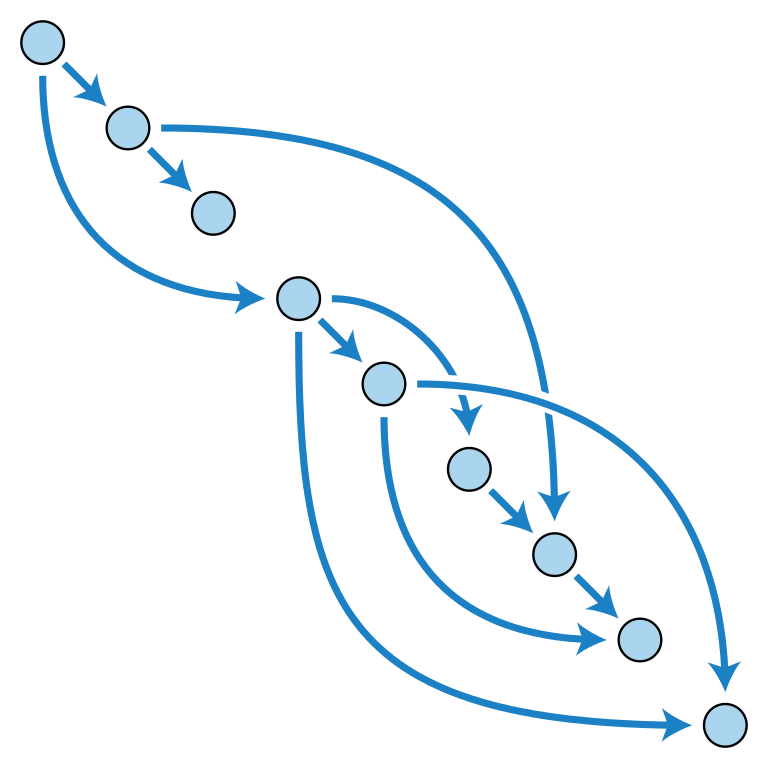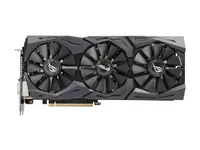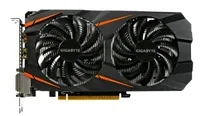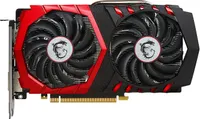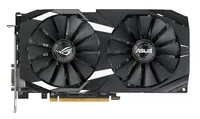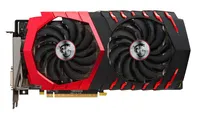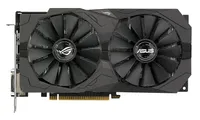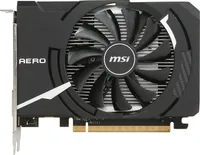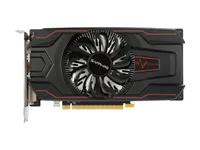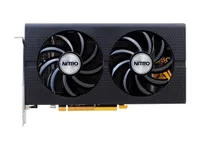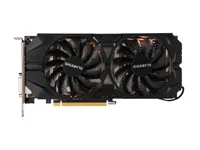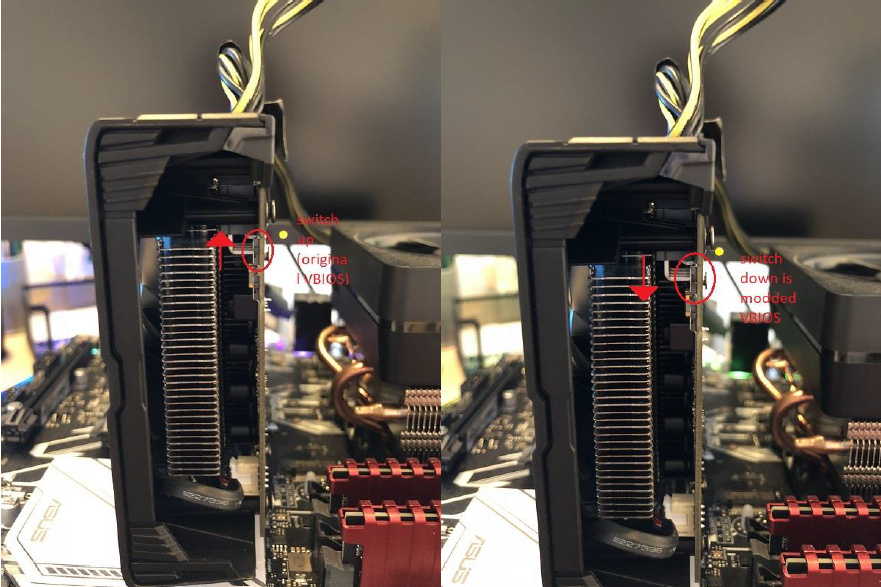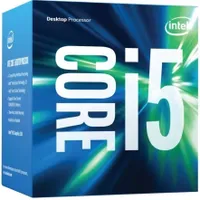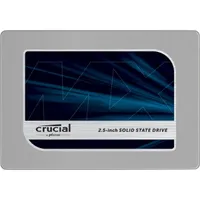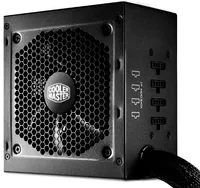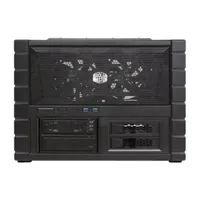Which GPU Is Best for Mining Ethereum? AMD and Nvidia Cards, Tested
The Graphics Cards We Tested
Not all graphics cards are even capable of mining Ethereum. Your AMD or Nvidia GPU should be a fairly recent model, and it's going to be limited by the amount of memory on-board.
The DAG Size Problem
Ethereum mining relies on the creation of a sizable file called a DAG (Directed Acyclic Graph). As time goes on and transactions take place, the number of ETH blocks grows, and the file grows as well. In practice, it gets a little bigger each time it crosses a threshold called a DAG Epoch, meaning every 30,000 blocks representing a window of ~100 hours. Since the DAG relies uniquely on this block hierarchy, it can be pre-generated, allowing miners to catch up. But the DAG must be stored in graphics memory. And that's where some cards run into problems.
Beginning with a certain Epoch, the DAG increased beyond 2GB. At that point, it no longer fit in the on-board memory of most entry-level graphics cards, rendering them ineffective for mining. With a DAG Epoch of 140, cards equipped with 3GB of memory are still usable, but with the size of the DAG continuing to grow, they're the next ones to be eliminated.
So, a graphics card with 3GB will work for now, but if you wish to continue mining Ethereum, you'll want a card with at least 4GB of memory. Boards with only 3GB can still be used with one of the other cryptocurrencies also based on Ethash, but with a smaller DAG size.
Our Contenders
We chose the following cards to test:
How About Mining-Edition Cards?
Certain board partners sell graphics cards specifically for mining. While they're often based on traditional gaming products, they do differ somewhat. For instance, the Sapphire model we're testing is based on an RX 470 Nitro, but with a few alterations. You only get one DVI-D output (certain other mining-specific cards have no display outputs at all), plus there's a second BIOS optimized for cryptocurrency mining. It lowers GPU frequency and voltage, while pushing higher GDDR5 clocks and tuned memory timings.
In practice, the stock BIOS on Sapphire's RX 470 Mining sports a 1288 MHz GPU frequency with Samsung RAM operating at 1850 MHz (and 1V). The purpose-built mining BIOS lowers the GPU to 1206 MHz and pushes the memory to 2150 MHz (with a 0.95V setting).
Get Tom's Hardware's best news and in-depth reviews, straight to your inbox.
Test Configuration
| Operating System | Windows 10 x64 Pro 1703 (15063.786) |
| Mining Software | Claymore's Dual Ethereum AMD+Nvidia GPU Miner v9.8* Claymore's Dual Ethereum AMD+Nvidia GPU Miner v10.3 |
| Drivers | Nvidia GeForce Game Ready 388.13Nvidia GeForce Game Ready 384.94** AMD Radeon Crimson ReLive Edition Beta for Blockchain Compute |
*We were not able to re-test Asus' RX 580 OC 4GB with the latest Claymore software version. We still included our previous results for your information, since there are minimal differences in performance between the two builds (almost nonexistent, according to the tests we carried out on other cards).
**We were not able to re-test Asus' GTX 1060 Strix OC 6GB with GeForce 388.13 drivers. However, our other tests performed with GeForce cards show no difference in performance between the 384.94 and 388.13 builds.
MORE: The Ethereum Effect: Graphics Card Price Watch
MORE: How To Mine Ethereum Now
MORE: Experiment: Build a (Profitable) Ethereum Mining Rig From Spare Parts
MORE: Top 25 Cryptocurrencies By Market Cap
MORE: Best Graphics Cards
Current page: The Graphics Cards We Tested
Prev Page Ethereum: A Bitcoin Killer? Next Page Modifying A Radeon's BIOS-
abryant Archived comments are found here: http://www.tomshardware.com/forum/id-3520934/ethereum-mining-performance-geforce-radeon.htmlReply -
Integr8d I like hot Toms laments the prices of GPUs, due to the mining craze, and then publishes articles like this...Reply -
derekullo Reply
If you know the enemy and know yourself, you need not fear the result of a hundred battles.20677340 said:I like hot Toms laments the prices of GPUs, due to the mining craze, and then publishes articles like this...
If you know yourself but not the enemy, for every victory gained you will also suffer a defeat.
If you know neither the enemy nor yourself, you will succumb in every battle.
-
WyomingKnott Add some workstation cards to the review. If they turn out to be hashmasters, it would relieve the strain on the graphics card market.Reply
fat chance. -
derekullo Reply20677421 said:Add some workstation cards to the review. If they turn out to be hashmasters, it would relieve the strain on the graphics card market.
fat chance.
A titan V would have handily crushed any of the cards here with its 70+ MH/s Eth rate.
https://hothardware.com/reviews/nvidia-titan-v-volta-gv100-gpu-review?page=5
But when it comes to making your money back you use:
Cost of graphics card / Megahashes per second (Easy to understand formula, real formula at the bottom)
For the Geforce 1060 that comes out to roughly
$400 / 25MH/s or 16 dollars per megahash (I was able to buy 4 1060s for about $300 each a few months ago. Score!!!)
For the Geforce Titan V that comes out to roughly
$5000 / 82MH/s or 61 dollars per megahash.
As you can see it would take at least 3.8 times as long for a Titan V to pay itself off, not including the power cost.
This isn't the most true comparison due to not taking power into account, but still gives an easily understandable way of seeing why a $5000 GPU isn't worth mining with.
You could have simply bought 3 Geforce 1060s and had a similar hash rate for cheaper.
The goal here being to make back the price of the graphics cards, then everything else is gravy.
Ideally I would have used the formula of
Cost of graphics card / Spreadsheet calculated monthly income taking power and other fluctuations into account.
to calculate on average how long a graphics card would take to pay itself off.
You can also use the calculator on https://whattomine.com/ to quickly calculate the "Spreadsheet calculated monthly income" -
aquielisunari Sun TzuReply
If you know the enemy and know yourself, you need not fear the result of a hundred battles.
If you know yourself but not the enemy, for every victory gained you will also suffer a defeat.
If you know neither the enemy nor yourself, you will succumb in every battle.
-
aquielisunari Bad job Tom's. Just add fuel to the GFX card debacle. Irresponsible and just wrong. First the user must go out and OVERSPEND on a GFX card and then follow this article and start mining and increase the shortages even further. Hm, good job Tom, good job.Reply -
derekullo Reply20677582 said:Bad job Tom's. Just add fuel to the GFX card debacle. Irresponsible and just wrong. First the user must go out and OVERSPEND on a GFX card and then follow this article and start mining and increase the shortages even further. Hm, good job Tom, good job.
Tom's gave you all the information needed for you to decide whether to mine or not.
Let me paint it a bit simpler.
Lets assume you believe the price of Ethereum is going to stay at what it is today, currently $709, forever.
Plugging in all that information into whattomine.com gives us:
https://whattomine.com/coins/151-eth-ethash?utf8=%E2%9C%93&hr=22.5&p=90.0&fee=1.0&cost=0.06&hcost=400&commit=Calculate
(0.06$/kWh is my power cost in my area)
Or $38.78 monthly profit or a 309 day repayment.
If you are confident that Ethereum's price will stay the same or maybe even rise then you could expect to recoup your $400 purchase in at max 309 days.
If 309 days is too long to wait or you are unsure about cryptocurrencies then stay out of the water.
-
WyomingKnott @aquielisunariReply
I don't think that Tom's is going to advance mining much; our longtime enthusiast members mostly won't get into it and it's widely enough known already. A little extra knowledge for those of us on the sidelines and, who knows, maybe miners will concentrate on the most efficient cards and the price of the rest will go down. Not an issue for me, I'm running a fanless GT430, so what do I care about current prices?
